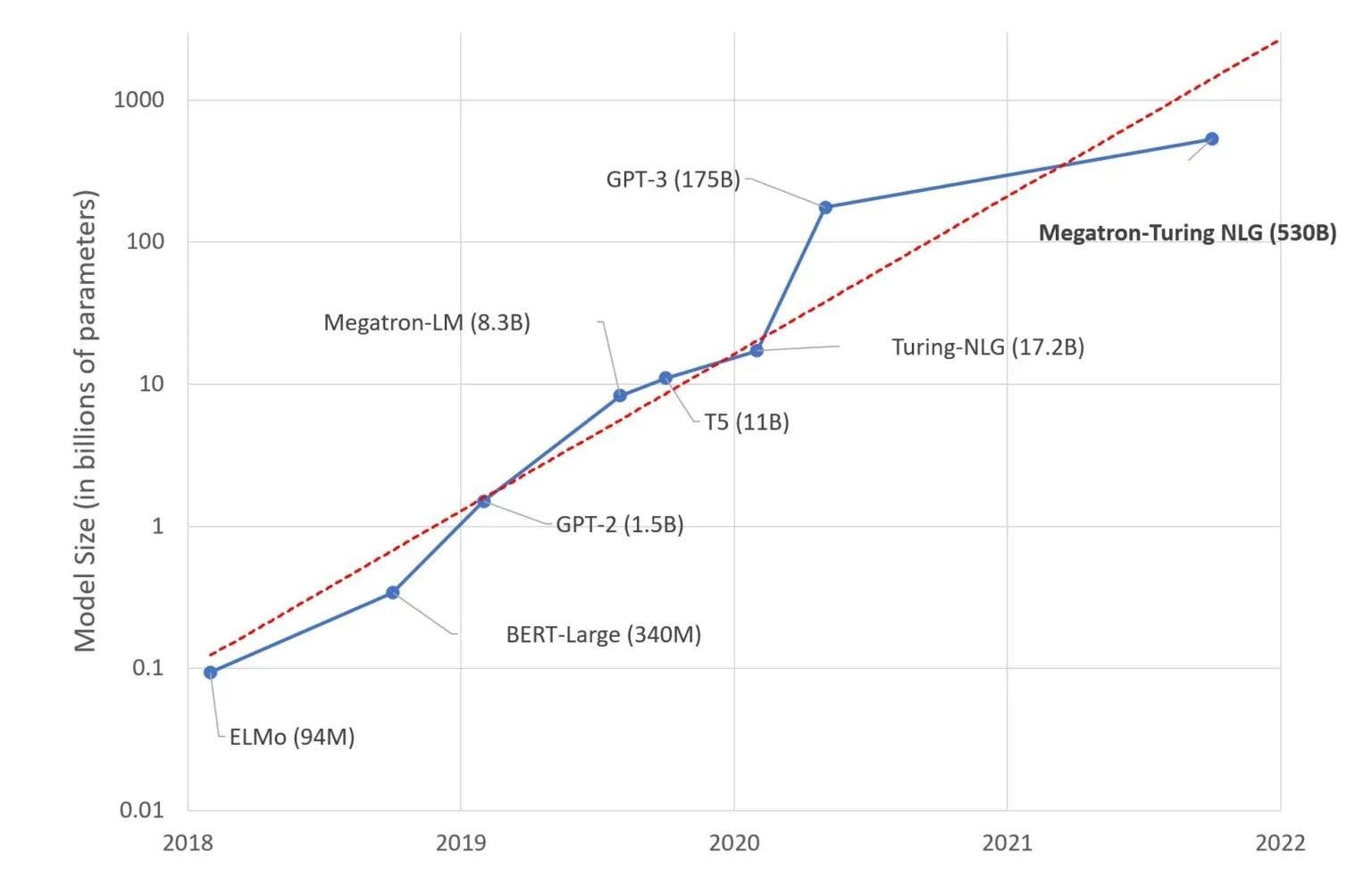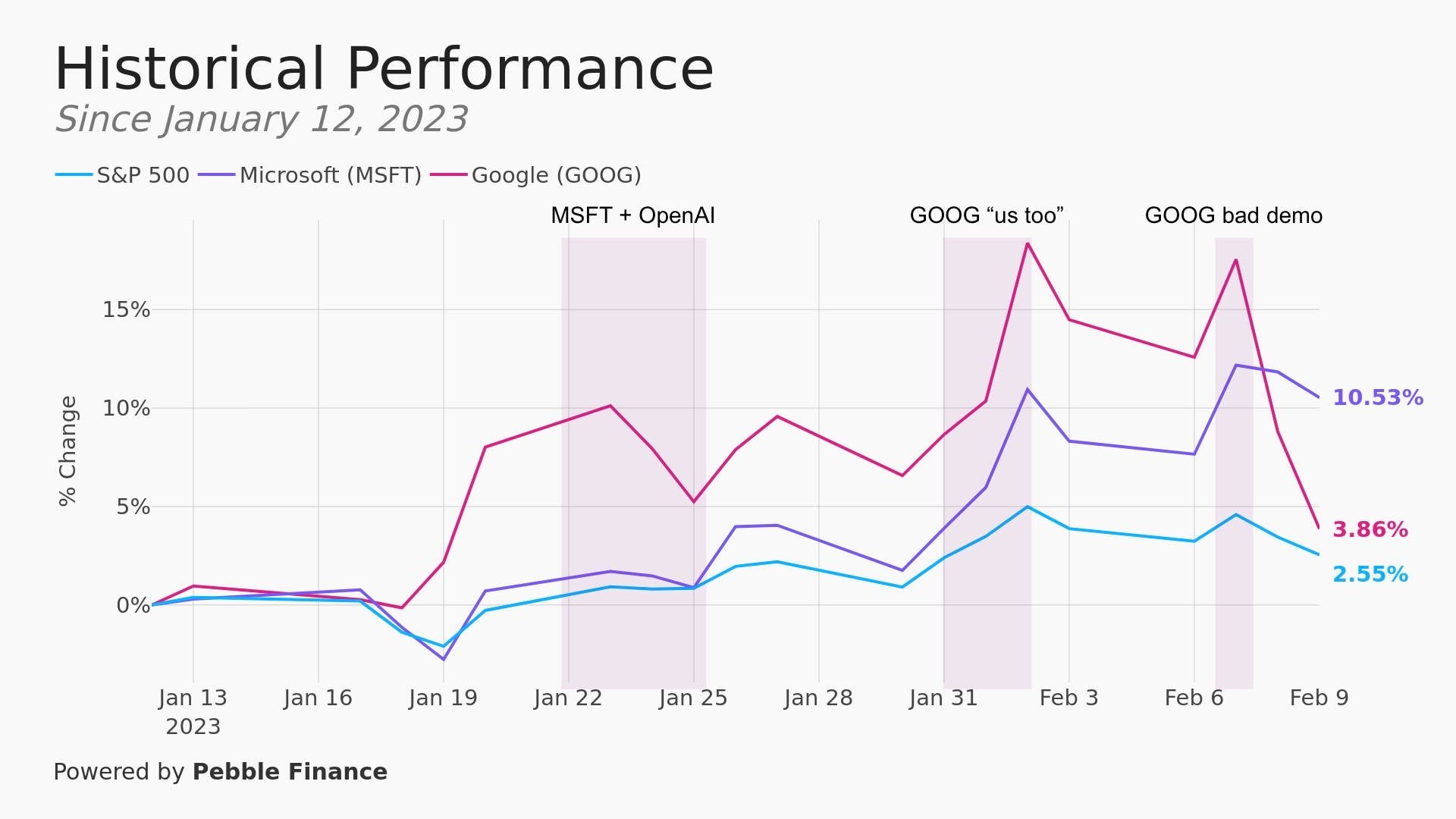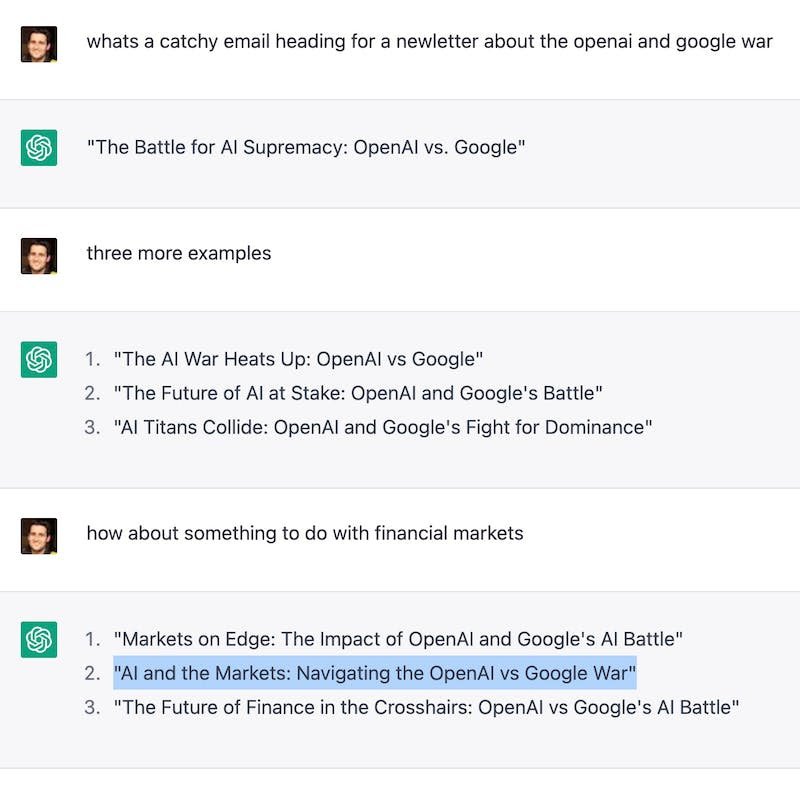AI and the Markets - Navigating the OpenAI vs Google Chat Bot War
Artificial Intelligence (AI) has roots that date back to the 1950’s. Over the following decades AI research stayed largely confined within the walls of academia. It was more about theory and publishing whitepapers vs practical application. This is simply because, for the longest time, AI wasn’t technically or economically practical.
It wasn’t until the early-mid 2010’s that the technology conditions were ripe enough for AI to “break out of the lab” and really start living up to its academic potential. Computing was cheap and scalable. Companies were investing heavily in digitizing and cleaning their data. Decades of AI research lied in wait to be tested in the real world.
Around this time large internet-tech companies (ie. Google, Meta) started investing in AI for the purpose of improving their key revenue driver: selling more ads. However, “selling more ads” isn’t exactly the most inspiring mission for a top-tier AI research scientist to get behind. As such, to attract top talent most of these tech companies openly shared/published their research with the broader AI community thus helping the entire AI field to advance.
Even though the companies are competing, in a way the researchers are still collaborating and learning from each other. As such, you can say that a lot of AI’s from various companies are “related” to one another.
The class of AI being discussed today is called a large language model (or LLM). These large language model AI’s are like anthropologists studying an ancient civilization except that the civilization is us. From the outside they are learning the semantics of our language, when or where terms might be used and in what contexts.
As you can see below we look at the growth of LLMs development over time. In a span of just 4 years - the size (loosely associated with how smart the machine is) increased 1000x! The timespan between significant advancements here is measured in months - not years! And the “who” that delivered that next advancement is changing each time.
Source
Google leverages their original language model (called BERT) to improve search. So when the search query mentions Eagles and Chiefs… well the person probably wants to know something about the Superbowl.
Best-in-class search results → more returning visitors → more ad revenue. It’s as simple as that.
OpenAI on the other hand, isn’t in the ad business (yet?) and they don’t have a specific consumer product. Their business model is to sell AI-as-a-service to other companies. ChatGPT is a demo page that showcases what’s possible with their AI and it has captured our collective imaginations.
Because its the first time many people are explicitly interacting with an AI… I think it has also given the illusion of this company being decades ahead - instead of merely months ahead.
Hmmm.....
To be clear - OpenAI is currently ahead. They and their ChatGPT is the new “hotness” meanwhile Google (and their response, Bard) is a “hot mess”. But if you believe, as I personally do, that this game of AI leapfrog will continue over the next few years… then there is a possible opportunity to be had as the individual battles of this AI war play out.
Let’s frame two of the most recent “battles”...
About a month ago Microsoft swept in and sealed an investment/partnership with OpenAI (effectively an acquisition without actually being one). Since then, the stock market has rewarded MSFT with a 10% price improvement (or about $200B in market cap value).
Just a few weeks later Google gave a public and perhaps rushed demonstration of their new challenger AI (“Bard”) which embarrassingly and confidently gave a wrong answer. In reaction - the stock market punished GOOG with a 10% price reduction (or about $100B in market cap value).
Ouch!
With each battle a new (potentially alternating) current winner is crowned and is said to have unlimited upside. At the same time a new loser is labeled and is said to be destined for the graveyard.
The AI technology behind these battles is closer than many people think. The game of leapfrog will continue for quite a while. Just be mindful that wins or losses, leveraged by hype and herd mentality, can lead to market overreaction. As James might say… stay disciplined.
In addition to being amazing to watch, one thing is for certain. This type of competition playing out will most certainly accelerate and advance the broader field of AI. It is an exciting time to be an AI research scientist.
Unlike conventional warfare - the end result of this capitalistic war will yield entirely new capabilities and with that an exciting array of new business models. But similar to conventional warfare - there will be a wake of destruction left behind it.
Blast Radius:
For the sake of simplicity, let’s say that the internet as we know it got its start in the mid-1990’s. It didn’t, it’s older than that, but it wasn’t until the creation of Netscape (which coincidentally kicked off the “browser wars”) that the broader internet became more approachable to the masses. Netscape was an interactive window into this entire new digital world. Side note: here is a fantastic book on this period of tech history.
ChatGPT, or these “question-answering systems” in general, are doing what Netscape had achieved almost 30 years prior. They are giving us a new window into this world wide web of information. One with a super simple interface that enables us to ask potentially complex questions and, for the most part, get pretty decent answers. In fact I used ChatGPT to come up with the title of this newsletter!
Regardless of who comes out the winner(s) in this AI war, if this type of interface were to mature and become the dominant way that we seek and learn information then this has some pretty nasty side effects for a significant segment of internet business.
First off, the term “search” would become a nostalgic term to our generation - similar to “taping” a TV show or “hitting the gas” in your car. It’ll be a term associated with a really antiquated and crude way of finding answers.
Enter some words in a search box
Click-n-read the top 2 or 3 results to see if they're good
Get pummeled with ads along the way
Didn’t work? → Rinse, wash, repeat
Nobody will search any more… in the future they will just “ask”. However, the internet is going to need to figure out a new business model to sustain itself if everyone is just “asking”.
Outside of eCommerce (where goods and services are sold) most of the internet is fueled by marketing dollars. Everyone from major news outlets like CNN (owned by WBD), niche consumer blogs like NerdWallet (NRDS), and yes even the obnoxious number of recipe websites that exist… all rely on your eyeballs spending time on their site. The more you visit and the longer you stay, the more ads and affiliate links they can serve.
When you are bleary-eyed, not-quite-caffeinated on a Saturday morning and ask ChatGPT for a recipe for pancakes, it responds succinctly with a recipe for pancakes. It does not respond with a list of 10 recipe websites. Each with pages of backstory and annoying ad popovers to dismiss before you can scroll down to the @#$%!@ recipe. (Sorry, it was a rough weekend, I digress…).
Anyway, in the world of “ask” these familiar content sites are going to struggle. They will also seem old fashioned and not in a good way. High quality sites (or at least ones that are hiring people to thoughtfully create content) might not be viable anymore. At least not in the way they exist today. I will say however this is going to be more of a struggle for smaller businesses (private cos) than large businesses (public cos). The latter of whom may have other business models into which they could pivot (i.e.subscriptions).
Ironically, this will eventually become an existential problem for question-answer systems too. Note in the above example… ChatGPT doesn’t actually know how to make pancakes let alone differentiate a good recipe from a bad one. It’s not sentient. In its training it has undoubtedly come across recipe websites. It has learned the patterns of how people share recipes so it can craft the correct style of output. But in the end it populates that output with something it saw (or some combination).
If the content sites that make question-answering systems seem magical go offline or get paywalled because they aren’t viable otherwise, well then question-answering systems as a whole will suffer too. It’ll take a while but it's neat to think about.
*******
Have questions? Care to find out more? Feel free to reach out at contact@pebble.finance or join our Slack community to meet more like-minded individuals and see what we are talking about today. All are welcome.



